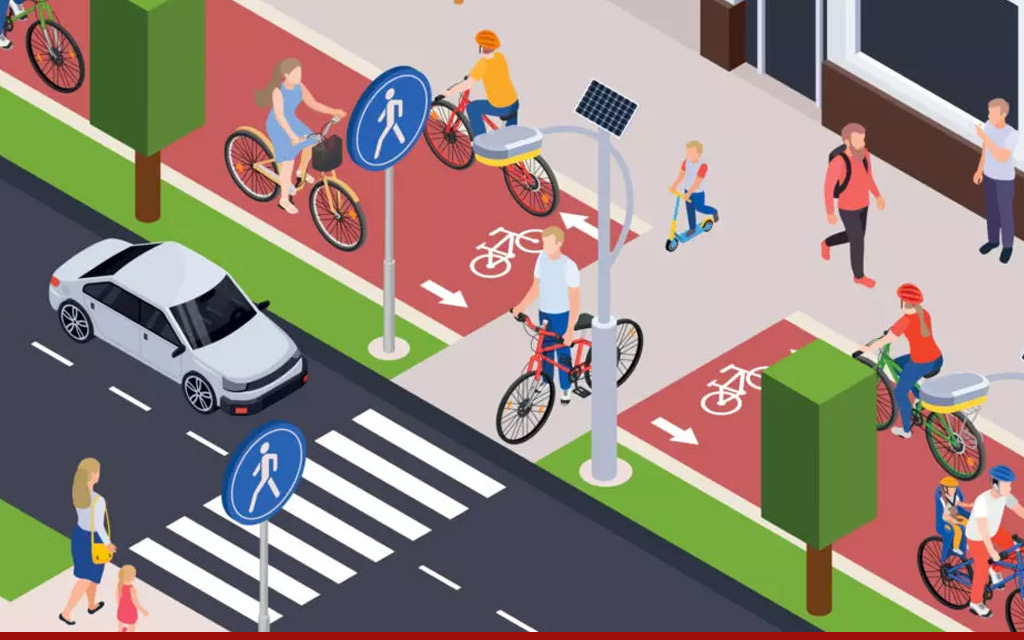Cevat Yerli wants a metaverse rooted in pragmatism, optimism and happiness. He’s not alone.
A generation that’s grown up on video games will help determine how the future plays out, so to speak. “Gaming is the digital manifestation of our human nature,” says Cevat Yerli, a successful gaming entrepreneur who is the son of Turkish immigrants and was born in Germany.
Today Yerli is using his gaming chops to create a broader vision for an emerging metaverse. It won’t be filled with Bored Apes or overdressed avatars, he says. His metaverse is called Internet of Life and runs on RealityOS, a 3D engine featuring real-time video twins of its users instead of avatars. He says it “will not be an escapist world like many of my American counterparts are building,” but rather a world where you can experience a rich digital life grounded in getting stuff done and solving major challenges. His vision of the metaverse is one rooted in pragmatism, optimism, and happiness.
Yerli’s first project with his new metaverse company, The TMRW Foundation, was created for the United Arab Emirates, a country that has invested heavily in building out a government metaverse. One of TMRW’s first projects was a metaverse service center for the UAE Ministry of Health and Prevention. Residents can get health services and consultations from this government entity without leaving home or going to a conventional website.
Yerli, like so many metaversians, got his chops building super successful games built on components that would become the spine of Web 3.0: a realistic gaming engine, in-game currencies, motion capture animation, and user immersion. Transferring the gaming ethos to a more pragmatic metavese has become a battle cry for Yerli and others who see a purpose beyond just entertainment or brand building in this new web. And while everyone from banks to law firms are starting to hang out their shingles in the metaverse, some of the the loftiest ambitions are coming from governments like the UAE as well as private/public partnerships around the world hoping to solve citizen problems, from the most mundane to the most pressing.
Countries, cities, states and governments are creating digital twins of their physical spaces. Then, using feedback collected from the real world sensors and IoT devices, combined with AI models, they’re driving simulations of how things might play out in the real world. Imagine, for example, using a digital twin of a city to explore traffic routing, truck idling patterns or energy usage. You don’t need a headset so far for the new government metaverses, though it might be more fun if you donned one.
Unlike the metaverse of fashion and art, the metaverse of government will rely more heavily on IoT, 3-D visualization, open data and mobile data. Long before you need to invest any money in building a new road or laying piping in a city, you can explore and test the ramifications of such moves in the digital metaverse. Challenges that lend themselves well to these sorts of digital twin metaverse worlds include pollution, public health, affordable education, crime, and extreme weather.
If Dogs are Like Their Owners, Metaverses are Like Their Countries
Government initiatives in the metaverse are numerous. They fall into 3 major categories: using digital twins to remedy issues, bringing a set of services to residents, or enhancing tourism goals (both physical and online) for real world visitors.
In the U.S., we’ve seen numerous efforts to monitor traffic patterns, utility usage, and movement through a city using digital twins and information collected from Internet of things (IoT). While many of those efforts would not properly be called “metaverse”-related, they move in the right direction (headset devices optional). Now Orlando, Boston and Las Vegas have created virtual replicas of their cities in the form of digital twins, allowing them to play out hypothetical scenarios to anticipate specific impacts of things like adding new buildings, changing streets or other land use decisions. Pittsburgh used such systems to help deploy adaptive traffic signals which change based on actual traffic to reduce commute times and fuel consumption. This “smart traffic system” has reduced travel delays in Pittsburgh by about 20 percent.
In places like Santa Monica, California the focus is on tourism, using the metaverse to provide virtual experiences where participants can collect digital tokens to unlock real world experiences. One of the most promising projects in the U.S. is privately held, and known as Cityzenith. This company is hoping to drive carbon-free building in cities through its SmartWorld OS digital twin platform. The platform connects every IoT item in a building or city – including data from thermostats, HVAC traffic lights, water usage, and energy consumption. “Buildings in cities produce 50-70% of total emissions”, says Cityzenith’s literature, “and in dense cities like New York and others, more than 80%.”
Seoul, South Korea has one of the most ambitious metaverse projects of all. As part of the five-year metaverse Seoul promotion master plan, Seoul will invest $3.3 million to develop a platform to provide services to its residents. All of Seoul’s municipal administration departments, from traffic enforcement to tourism, will have metaverse offices. In Seoul’s “Metaverse 120 Center” residents will meet with avatar public officials in a virtual office for public services previously only available in person at City Hall.
Seoul sees many benefits of a governmental metaverse, including saving on time and travel, reducing language barriers, increasing access to services at convenient times, and also creating zones for cultural events, town halls and other community-building opportunities. Today Seoul offers cultural events in the metaverse to attract global tourism and has built a virtual city hall, where residents can have life-like interactions with city officials. Accessing key services from their homes will be a continuous rollout. By 2023, Seoul aims to create a metaverse where citizens can deal with civil complaints and consultations — virtually.
Passive Income
Taken to the extreme, government metaverses may ultimately become where we earn our living. …There’s no shortage of creative ideas for income generation in the metaverse–property ownership, a job in a metaverse community, and of course investment opportunities. And if you ask companies like Affyn the idea of a play-to-earn Metaverse is already reality. Expect soon to see voting, renewing a passport, and projects to make streets safer by changing lighting and traffic patterns, and plenty of projects to move towards generating fewer greenhouse gas emissions. These incipient governments in the metaverse may rewrite the rules of civic engagement. Or, as Cevat Yerli puts it: “The virtual world has to serve the purpose of making the real world better.”
SOURCE: https://techonomy.com/cities-and-countries-are-solving-real-problems-in-the-metaverse/




